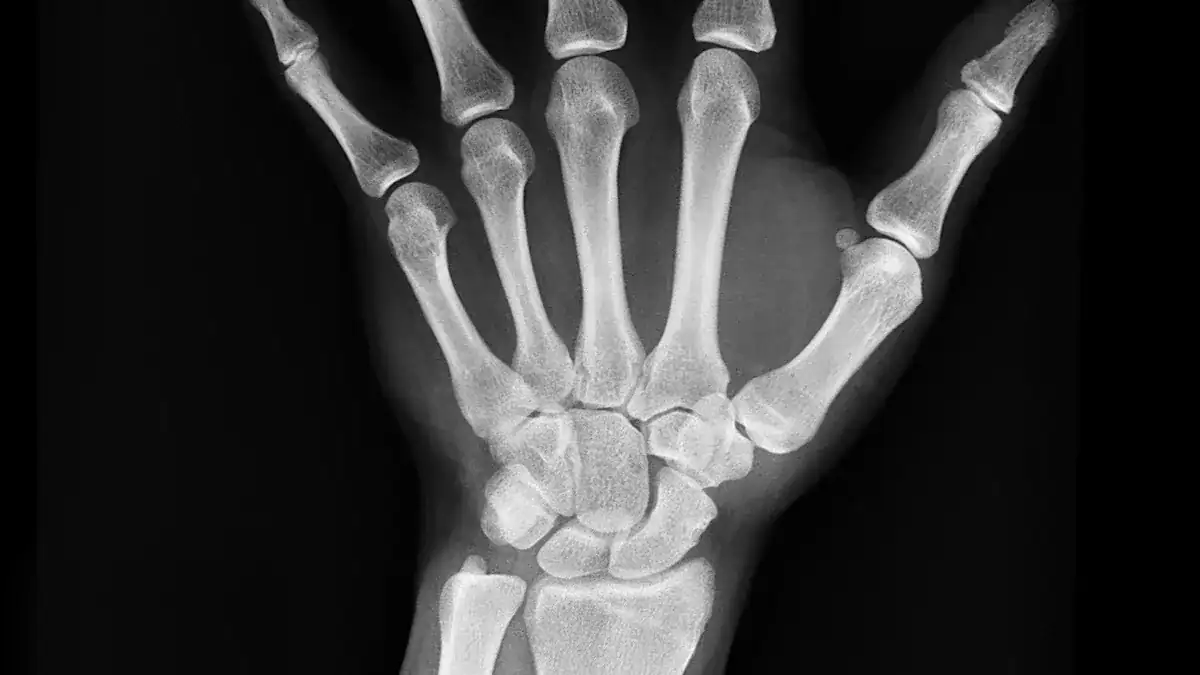
Shoulder pain with finger tingling often signals nerve involvement. This is a serious symptom requiring your attention. Many shoulder issues, like cervical radiculopathy or brachial plexus problems, can cause these sensations. In fact, studies show a significant number of shoulder patients also experience hand tingling or numbness. You need to understand these Urgent Nerve Signs and know when to seek immediate medical care. This blog helps you recognize these issues and guides you on what to do next.
Key Takeaways
Shoulder pain with finger tingling can mean nerve problems. You should pay attention to these signs.
Look for urgent nerve signs. These include sudden pain, weakness, or changes in bowel or bladder control. See a doctor right away if you have these.
Many things can cause these symptoms. Examples are a pinched nerve in your neck or problems with your brachial plexus.
Doctors use exams, imaging, and nerve tests to find the cause. Early diagnosis helps you get the right treatment.
Treatment options include rest, medicine, physical therapy, or injections. Surgery is an option if other treatments do not work.
Recognizing Urgent Nerve Signs

When you experience shoulder pain and finger tingling, certain signs tell you to seek medical help right away. These are often Urgent Nerve Signs. They point to potential nerve damage or compression. You must understand why these signs are urgent and what immediate action you need to take.
Sudden Onset And Severity
If your shoulder pain and finger tingling start very suddenly and feel very intense, you need to act quickly. This sudden, severe pain often comes from an injury or trauma. It can also signal a serious problem like nerve compression or injury. For example, a pinched nerve from repetitive motions or poor posture can cause burning and tingling that goes from your shoulder to your fingers. A herniated disc in your neck can also press on nerves. This causes shoulder pain and numbness down your arm. Even conditions like Carpal Tunnel Syndrome, which mainly affects your hand, can cause tingling in your shoulder. Brachial plexopathy, an inflammation of the brachial nerve, also causes sudden shoulder pain and numbness. These are clear Urgent Nerve Signs. You should see a doctor immediately.
Weakness Or Loss Of Function
If you notice weakness or cannot move your arm or fingers normally, this is a critical sign. This means the nerves controlling your muscles might be damaged. The brachial plexus is a network of nerves that runs from your spine, through your shoulder, and into your arm and hand. Damage to this network often causes shoulder pain, weakness, and finger tingling. A pinched nerve root in your upper spine can also lead to numbness, weakness, and a pins-and-needles feeling in your hand or arm. This often comes with shoulder pain. Injuries to the brachial plexus, sometimes called “stingers” or “burners,” can cause pain, numbness, and weakness. Brachial neuritis, an inflammation of these nerves, also causes pain, tingling, numbness, or weakness. Thoracic Outlet Syndrome can compress these nerves, leading to weakness and tingling, especially in your pinky and ring fingers. If you experience any of these, you need urgent medical evaluation.
Bowel Or Bladder Changes
Any changes in your bowel or bladder control, along with shoulder pain and finger tingling, are extremely serious. These are medical emergencies. They suggest a severe problem with your spinal cord. Conditions like Ankylosing Spondylitis can cause these symptoms later on. This includes numbness, tingling, weakness, and issues with bowel or bladder control. Spinal cord compression or cauda equina syndrome, complications of Ankylosing Spondylitis, can lead to incontinence. Syringomyelia is another condition that directly links shoulder pain, finger tingling, and loss of bowel and bladder control. You must seek emergency medical care right away if you have these symptoms.
Bilateral Symptoms
If you feel shoulder pain and finger tingling on both sides of your body, this can indicate a more widespread or central nerve issue. While many nerve problems affect only one side, symptoms on both sides are a significant concern. For instance, brachial neuritis, an inflammation of the brachial plexus, can cause tingling, pain, weakness, or numbness from your shoulder to your arm and hand. About 20% of brachial neuritis cases affect both sides of the body. Bilateral symptoms suggest a broader problem that needs careful investigation.
Recent Trauma
If your shoulder pain and finger tingling started after a recent injury or accident, you should not ignore it. Trauma can directly damage nerves. A pinched nerve, often called cervical radiculopathy, can happen from a herniated disc or bone spurs in your neck after an injury. Rotator cuff injuries can also irritate nearby nerves, causing pain and tingling. A bulging disc in your cervical spine from an accident can press on nerves that control your shoulder and arms. Trauma or overstretching of the brachial plexus can also lead to persistent pain and tingling. Always tell your doctor about any recent trauma when you report these Urgent Nerve Signs.
Common Nerve-Related Causes

When you experience shoulder pain and finger tingling, several nerve-related conditions could be the cause. Understanding these conditions helps you recognize what might be happening in your body. Each condition involves nerve compression or irritation in a specific way.
Pinched Nerve (Cervical Radiculopathy)
A pinched nerve in your neck often causes cervical radiculopathy. This happens when something presses on a nerve root as it leaves your spinal cord. Common culprits include bulging discs, bone spurs, arthritis, or thickened ligaments. These issues can narrow the space where the nerve exits. When a nerve gets squeezed, it sends signals of numbness, weakness, pins-and-needles, and pain. You might feel this pain in your shoulder, arm, and hand. The tingling in your fingers is a direct result of this nerve compression in your neck.
Brachial Plexus Issues
Your brachial plexus is a network of nerves. It runs from your spinal cord in your neck, through your shoulder, and down into your arm and hand. Problems with this network can cause significant shoulder pain and finger tingling. Many things can damage these nerves.
Direct injury to the nerve
Birth trauma
Injury from stretching
Pressure from tumors
Damage from radiation therapy
Birth defects
Exposure to toxins
Inflammatory conditions
Immune system issues
Acute brachial plexus neuritis, also known as Parsonage-Turner syndrome, is a distinct disorder. It often follows a viral infection, with up to 25% of cases having a preceding infection. Some cases, up to 15%, have also occurred after vaccinations, like the hepatitis B vaccination. This suggests it might be an immune system problem. When your brachial plexus is affected, you can experience pain, numbness, and weakness in your shoulder, arm, and hand.
Thoracic Outlet Syndrome
Thoracic Outlet Syndrome (TOS) occurs when nerves or blood vessels get squeezed. This squeezing happens in the narrow space between your collarbone and your first rib. This area is called the thoracic outlet. The brachial plexus nerves are often the ones affected. When these nerves are compressed, you can feel shoulder pain and finger tingling. You might also experience numbness or weakness in your arm and hand. This compression can also affect blood flow, leading to other symptoms.
Entrapment Neuropathies
Entrapment neuropathies happen when a single nerve gets compressed or “entrapped” at a specific point. This can cause pain, tingling, and numbness in the area the nerve supplies.
Pinched nerve root: This is a common form of entrapment. It occurs when nerve tissue branching from the spinal cord is compressed. Bulging discs, bone spurs (foraminal stenosis), arthritis, or thickened ligaments can cause this. You might feel numbness, weakness, pins-and-needles, and pain in your shoulder, arm, and hand.
Brachial plexus injuries: Damage to this nerve network in your neck, upper chest, or shoulder can lead to pain, numbness, and weakness. These symptoms can extend into your arm and hand.
Brachial neuritis: This is an inflammation of the brachial plexus. It can cause pain, tingling, numbness, and weakness along the nerve pathway from your neck and shoulder to your arm and hand.
Specific nerve dysfunctions:
Axillary nerve dysfunction: This can cause loss of movement or sensation in your shoulder.
Median nerve dysfunction (Carpal Tunnel Syndrome): This leads to numbness, tingling, weakness, or muscle damage in your hand and fingers.
Ulnar nerve dysfunction (Cubital Tunnel Syndrome): This causes numbness, tingling, and weakness on the outer and underside of your arm, palm, ring, and little fingers.
These conditions are all examples of how a nerve can get trapped, leading to your symptoms.
Peripheral Neuropathy
Peripheral neuropathy involves damage to nerves outside your brain and spinal cord. This damage can affect one nerve (mononeuropathy) or multiple nerves (polyneuropathy). It often causes shoulder pain and finger tingling. Many systemic conditions can lead to peripheral neuropathy:
Diabetes
Autoimmune diseases such as lupus, rheumatoid arthritis, and Guillain-Barré syndrome
Infections like Lyme disease, shingles, and HIV
Nutritional deficiencies (especially vitamins B1, B6, B12, E, and copper)
Excessive alcohol use
Genetic conditions such as Charcot-Marie-Tooth disease
Certain long-term illnesses can also cause mononeuritis multiplex. This is a condition where at least two separate nerve areas are damaged. It can cause pain, weakness, and unusual feelings. These illnesses include diabetes, vasculitis, lupus, and rheumatoid arthritis. If you experience these symptoms, especially with other health conditions, it could be one of these Urgent Nerve Signs.
Diagnosis Methods
When you experience shoulder pain and finger tingling, doctors use several methods to find the exact cause. These methods help pinpoint the specific nerve issue and where it is located.
Physical Exam
Your doctor will start with a physical exam. They will check your reflexes, sensation, and muscle strength in your arm and hand. They might ask you to move your neck or arm in certain ways. This helps them see if specific movements make your symptoms worse. The physical exam gives your doctor clues about which nerves might be involved and where the problem could be.
Imaging Studies
Imaging tests provide detailed pictures inside your body.
X-rays show your bones. They can reveal bone spurs or arthritis that might press on nerves.
Magnetic Resonance Imaging (MRI) uses magnets and radio waves. It creates detailed images of soft tissues like discs, nerves, and your spinal cord. An MRI can show if a herniated disc or other soft tissue is compressing a nerve.
Computed Tomography (CT) scans offer cross-sectional images. They provide more detail about bone structures than X-rays.
These images help your doctor see the source of nerve compression or damage.
Nerve Conduction Tests
Nerve conduction studies measure how well electrical signals travel through your nerves. These tests help identify nerve damage and its type.
Condition | Conduction Velocity (Proximal vs. Distal) |
|---|---|
Controls & Motor Neuron Disease | Normal, no significant difference |
Axonal Neuropathies | Preferentially slowed distally, relatively normal proximally |
Demyelinating Neuropathies | Marked slowing at both proximal and distal sites |
Axonal damage leads to lower amplitudes of the compound muscle action potential (CMAP). This means the nerve itself is damaged.
Demyelination shows prolonged latency and slow conduction velocity. This means the protective covering around the nerve is damaged.
These tests are good for large, myelinated nerve fibers. They are less sensitive for small, unmyelinated nerve fibers.
Blood Tests
Your doctor might order blood tests. These tests help rule out underlying conditions that can cause nerve problems. They can check for:
Signs of inflammation
Infections
Nutritional deficiencies, like low vitamin B12
Markers for autoimmune diseases
Blood tests help identify systemic issues that might contribute to your shoulder pain and finger tingling.
Treatment Options
You have many options for treating shoulder pain and finger tingling. Doctors often choose treatments based on your specific diagnosis. An accurate diagnosis is key for effective treatment.
Conservative Management
Doctors often start with conservative management. This means non-surgical approaches. You should rest your shoulder and change activities that make your pain worse. Apply ice packs for 15-20 minutes several times a day. Use a towel barrier. You can also use an elastic bandage for gentle compression. Elevate your shoulder with pillows. These steps help reduce swelling. For neck issues causing arm symptoms, focus on strengthening your neck and improving posture.
Medications
You can use medications to manage pain and inflammation. Over-the-counter options include NSAIDs like ibuprofen or naproxen. These medicines reduce pain and swelling. Acetaminophen can also relieve pain. Topical pain relief gels, such as menthol or diclofenac, offer direct relief.
Physical Therapy
Physical therapy is a vital part of recovery. A physical therapist guides you through specific exercises. These exercises improve strength, flexibility, and stability.
Chin Tuck (Cervical Retraction): You draw your head backward, keeping your eyes level. This relieves pressure on neck nerves. Hold for three seconds, repeat 10 times, three to four times daily.
Traction Exercise: Lie on your back at the edge of a bed. Let your head and upper torso hang freely. Hold for one minute, six times a day. This can relieve pain.
Neural Flossing (Neural Gliding): This technique reduces nerve tension.
Side to Side Strengthener (Cervical Rotation): Turn your head to one side as far as possible. Hold for a few seconds. Return to the middle. Repeat 10 times on each side. This improves neck movement.
Injections
Injections offer targeted pain relief.
Neck epidural steroid injections (ESIs): These deliver anti-inflammatory medicine directly to nerves in your neck. They reduce inflammation and pain from pinched nerves.
Trigger point injections: These target specific muscle spasm areas.
Radiofrequency ablation (RFA): This uses heat to disable problematic nerves. It stops them from sending pain signals. RFA can provide longer-term relief for chronic neck pain.
Surgical Interventions
Surgery is an option when other treatments do not work. For cervical radiculopathy, surgery has high success rates. Surgical management for cervical disc herniation shows a 66% to 98% success rate. Anterior Cervical Discectomy and Fusion (ACDF) has good results in 93% of cases. Neck surgery to treat arm pain from cervical radiculopathy has an 80% to 90% success rate. Most patients experience significant pain relief and better nerve function.
Persistent shoulder pain and finger tingling are serious. You must pay attention, especially when you see Urgent Nerve Signs. These symptoms are not normal. They need professional medical evaluation. Do not try to diagnose yourself. Consult a healthcare professional. They will give you an accurate diagnosis and a personalized treatment plan. Early diagnosis and intervention can greatly improve your outcomes. They also prevent further complications.
FAQ
What causes finger tingling when you have shoulder pain?
Nerve compression or irritation often causes finger tingling with shoulder pain. A pinched nerve in your neck or issues with the brachial plexus can send abnormal signals. These signals travel down your arm to your fingers. This creates a tingling sensation.
What are “Urgent Nerve Signs”?
Urgent Nerve Signs are serious symptoms. They include sudden, severe pain, weakness, or loss of function. Bowel or bladder changes, bilateral symptoms, and symptoms after trauma are also urgent. These signs mean you need immediate medical attention.
What is the brachial plexus?
The brachial plexus is a network of nerves. It starts in your neck and goes through your shoulder. These nerves control movement and sensation in your arm and hand. Damage or compression to this network can cause pain and tingling.
What does a nerve conduction test show?
A nerve conduction test measures electrical signals in your nerves. It shows how fast and strong these signals are. This test helps your doctor find nerve damage. It also tells them if the problem is with the nerve itself or its protective covering.

